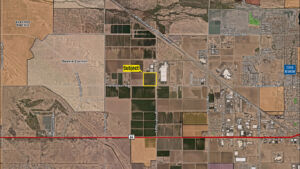Property tax liens and levies are part of how governments manage tax collection when property owners miss payments. These legal measures are often misunderstood but play an important role in how real estate is handled across many communities. For those involved in real estate ownership or investment, it is useful to know how these processes work.
When unpaid property taxes are recorded against a property, local authorities may take action to secure the amount owed. This often begins with a lien, followed by a levy if the situation is not resolved. The following sections explain how each works, how they affect properties, and what can be done to stay informed.
LOCAL NEWS: 100 best places to work and live in Arizona for 2025
Meaning of a Property Tax Lien
A property tax lien is a formal notice recorded against a property when a tax payment is missed. It represents a legal claim for the unpaid amount, which must be addressed before selling or refinancing. The lien is included in the property’s public record and is often discovered during a title check. It remains with the property even if the owner changes. Reviewing lien status is important before making decisions involving the property.
How a Tax Levy Applies to Property
A tax levy follows a lien if no resolution is made. It allows a taxing body to collect the unpaid tax directly from the property. Levies are executed after several notices have been issued, and no arrangements have been made. The property may be used as part of the process to satisfy the debt. Once initiated, a levy may result in further steps involving the property. Local procedures define these steps and generally follow a structured process.
How Liens and Levies Affect Property Activity
Liens and levies are often recorded in public documents and tend to appear during legal reviews of a property. Buyers, agents, and attorneys typically check for these details before moving forward with a sale or agreement. These entries can affect how smoothly a property transaction proceeds. If a lien is still unresolved, it may delay or pause a sale until the balance is cleared. In many cases, lenders also require that liens be removed before approving financing. Some regions allow liens to be transferred or purchased by other parties, but this process follows specific rules.
Steps That May Help Prevent Liens and Levies
Managing tax obligations consistently allows property owners to avoid complications tied to liens and levies. Simple organizational habits and reliable communication with tax offices can reduce confusion and make it easier to keep up with scheduled payments.
Here are a few actions to consider:
- Use a calendar to record payment due dates
- Save payment confirmations for reference
- Request a yearly summary from the local tax office
- Consider escrow arrangements for consistent payments
- Stay in contact with the tax office if any change occurs
Where to Find Reliable Guidance on Property Tax Matters
Handling property taxes can sometimes feel complex, especially when liens or levies are involved. In such cases, working with professionals familiar with local tax systems can be helpful. They often assist with questions about assessed values, payment concerns, or notice responses. Their support can offer clarity at different stages of the process. For many property owners, this kind of guidance adds confidence to their decision-making.
Unpaid property taxes may lead to liens and later levies when obligations are not addressed. Both measures become part of the property’s records and can influence future decisions related to it. Having a clear understanding of these tools provides helpful context for anyone involved in real estate.




